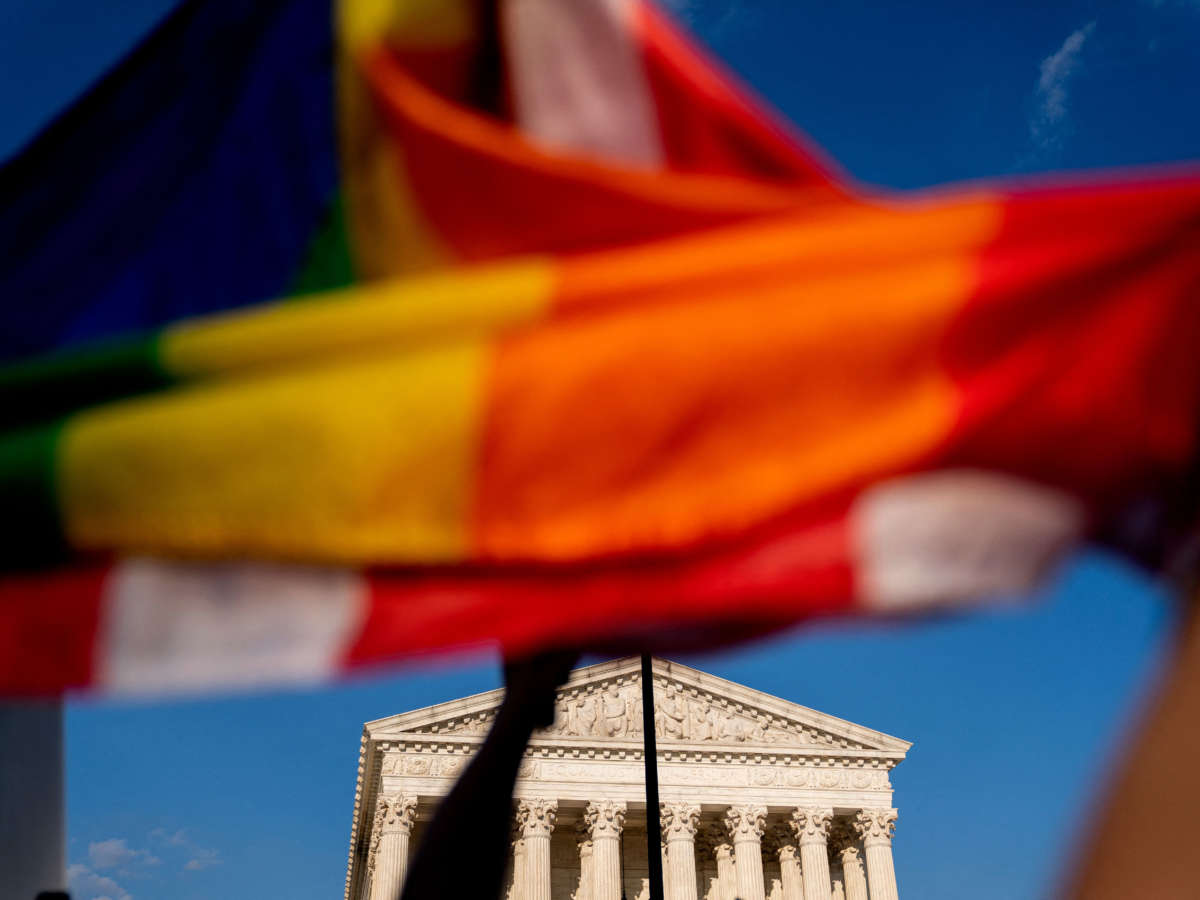On Tuesday, the House passed a bill aimed at enshrining the right to same sex marriage into federal law, preempting a possible ruling from the far right Supreme Court repealing marriage equality protections.
The Respect for Marriage Act passed with all Democrats and only 47 Republicans voting “yes.” One hundred fifty-seven Republicans voted against the bill.
The bill would repeal a homophobic law signed by President Bill Clinton in 1996, known as the Defense of Marriage Act (DOMA), that only recognizes marriage as being between a man and a woman. Further, the new bill would explicitly repeal laws that allow states to only recognize homophobic definitions of marriage, ensuring that both gay marriage and interracial marriage remain legal on the federal level.
The bill now moves to the Senate, where it could have a shot at overcoming the 60-vote filibuster. Several Republican senators have committed to voting for the bill, and have said that there is a real possibility that at least 10 GOP members could vote for it. Senate Majority Leader Chuck Schumer (D-New York) is reportedly shopping around for GOP support, and is hoping to bring the bill to the floor soon.
If the bill passes into law, it would preemptively protect the right to gay marriage before the Supreme Court potentially repeals 2015’s Obergefell v. Hodges, which Justice Clarence Thomas has indicated could be next on the far right justices’ docket after abortion rights.
Democrats and progressives, including openly gay members of Congress, celebrated the passage of the bill, saying that marriage equality is an important step toward achieving justice for the LGBTQ community.
“Justice Thomas told us that this far-right Supreme Court is coming for marriage equality. As one of only nine openly gay members of this Congress, this attack is as personal as it gets,” said Rep. Mondaire Jones (D-New York).“Our community is counting on Congress to act. We need to pass the Respect for Marriage Act.”
As LGBTQ advocates have noted over the years, codifying the right to same sex marriage is an important measure that activists have fought for for decades — but marriage equality alone doesn’t amount to true liberation for the community.
While the LGBTQ community has notched several major wins over the past years, including a Supreme Court ruling in 2020 that protects LGBTQ people from being discriminated against in the workplace, LGBTQ people still face legal and social discrimination in the country. Last year, for instance, the Supreme Court protected the supposed religious right of adoption agencies to discriminate against same sex couples wishing to adopt a child. Gay and trans people are also more likely to experience poverty, incarceration, suicidal ideation and hateful violence.
Further, the bill comes at a time when the far right is waging relentless anti-LGBTQ attacks. These attacks range from coordinated efforts to falsely label gay and trans people as “groomers” to Republicans passing a slew of fascist anti-trans bills.
These attacks have not only resulted in fear among the LGBTQ community, but also outright violence against gay, bisexual and trans people; last month, for instance, a white supremacist group had planned to wage an armed riot against a Pride parade in Coeur D’Alene, Idaho, but their plot was stopped by police. June overall saw a surge in anti-LGBTQ attacks, as major right-wing figures have been explicitly calling for violence against LGBTQ people.


